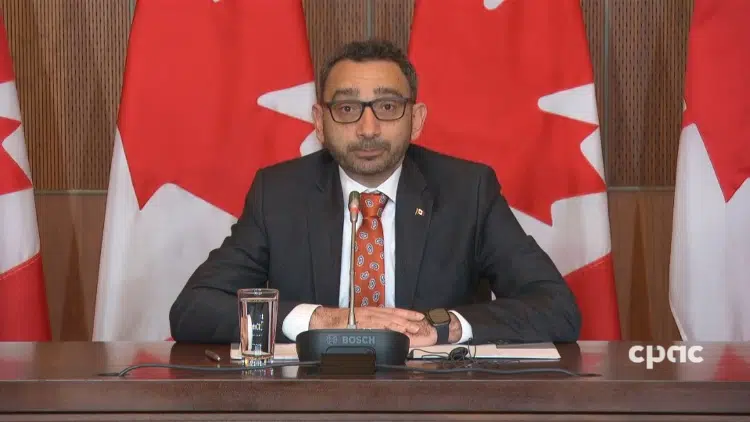The federal government is taking steps to strengthen air passenger protections for Canadians.
Transport Minister Omar Alghabra unveiled proposed changes to the air passenger bill of rights on Monday.
Alghabra said it stems from a backlog in customer complaints to the Canadian Transportation Agency (CTA) last year.
“These challenges have given us useful insight into how we can strengthen the rights and protects passengers even further,” Alghabra told reporters in Ottawa.
Alghabra said the proposed changes would make compensation mandatory for all disruptions, except in ‘limited circumstances.’
Those exceptions, he said, will be developed by CTA following a series of consultations with the public.
“Right now, compensation for delays and cancellation is only required for disruptions caused by the airline and which is not a safety issue,” said Alghabra.
The changes would combine the current three categories — disruption within the airline’s control, disruption within the airline’s control but necessary for safety, and outside the control of the airline — into a single category.
“This means there will be no more loopholes where airlines can claim a disruption is caused by something outside of their control for a security reason when it’s not,” said Alghabra.
Alghabra said the burden of proof for compensation will also change from passengers to the airlines, which he said will make the process much simpler.
The proposed changes would make standards of treatment, such as providing food and water to passengers, mandatory for all flight disruptions.
In addition, new requirements — to be announced in the coming weeks — will be established related to delayed and lost baggage.
Alghabra said airlines will have to establish an internal process for dealing with air travel claims and will have to manage complaints within 30 days.
The CTA will also be able to recover the cost of air passenger complaints from the airlines, “giving airlines a stronger incentive to address complaints directly with travellers as soon as possible,” said Alghabra.
“We expect these measures will reduce the number of complaints referred to the agency,” he said.
For complaints that do make it to the agency, Alghabra said the current resolution process will be replaced with a more simplified process to ensure travellers get a quicker decision.
The government is also proposing to increase the maximum fines the CTA can impose on airlines from $25,000 to $250,000.
“These measures are not meant to demonize airlines,” said Alghabra. “It’s important to acknowledge that when a passenger purchases a ticket, that is a transaction between the passenger and the airline, so it’s the airline’s responsibility to ensure they uphold their obligations to their customers.”







